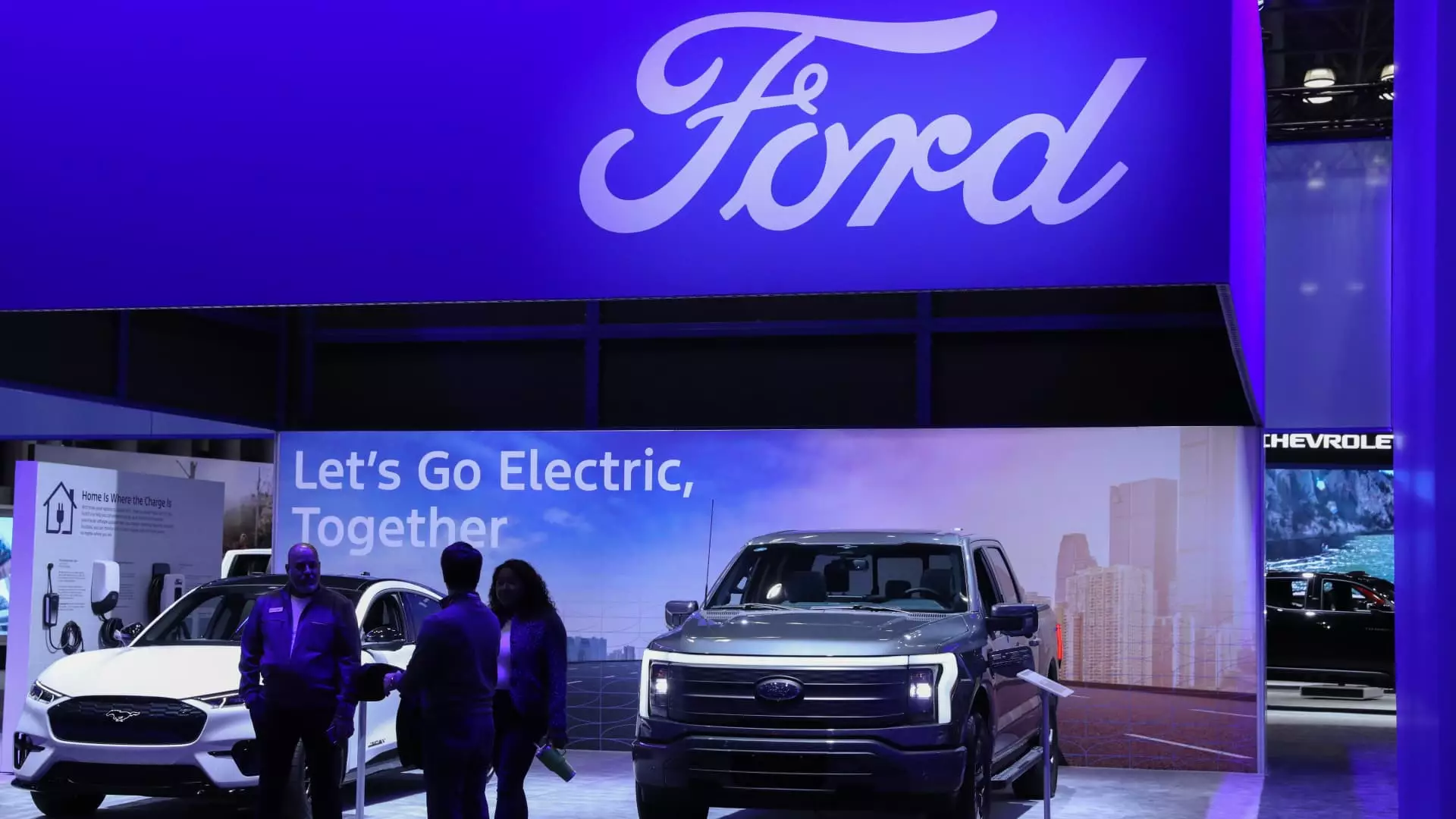Ford Motor recently announced that they will be delaying the production of a next-generation all-electric pickup truck at a new plant in Tennessee and cancelling plans for a three-row electric SUV. This decision comes as a surprise to many, as the automotive industry has been heavily leaning towards electric vehicles in recent years. Instead, Ford will be focusing on the development of hybrid models, as well as electric commercial vehicles in the coming years.
According to Ford CFO John Lawler, the company will be prioritizing the production of hybrid models and electric commercial vehicles, such as a new commercial van in 2026, followed by two EV pickup trucks in 2027. The decision to focus on commercial land trucks and SUVs was made based on market demand and competitive advantage. The shift in focus is meant to ensure a more capital-efficient and profitable electric vehicle business for Ford in the long run.
While these changes are intended to benefit Ford’s electric vehicle business in the future, they will come at a cost in the short term. The company is expected to incur a special noncash charge of about $400 million for the write-down of certain product-specific manufacturing assets, including the cancellation of the three-row SUV. Additionally, there may be additional expenses and cash expenditures of up to $1.5 billion as a result of these changes.
Ford’s future capital expenditure plans will shift from spending approximately 40% on all-electric vehicles to spending 30%. While these changes are significant, Ford has not provided a timeline for when this shift will take place. The company is still expected to start battery cell production at the new $5.6 billion Tennessee site in 2025, despite the delay in vehicle production.
According to John Lawler, Ford’s decision to shift focus to hybrid models and electric commercial vehicles is a response to customer feedback. The company has been actively involved in the electric vehicle market for over two years and has learned a great deal from customer responses. Customers are looking for more electrification choices, which has influenced Ford’s decision to prioritize hybrids over all-electric vehicles.
Ford’s next generation of EVs will kick off with a commercial van that will be assembled at Ford’s Ohio Assembly Plant in 2026. The automaker has made it clear that they will not launch a vehicle unless there is a clear path to profitability within the first year. This strategic approach represents a shift from Ford’s previous strategy of selling EVs at a loss to gain market share.
Despite the shift in focus towards hybrids, Ford will continue to produce and update its current all-electric vehicles, such as the Ford Mustang Mach-E crossover and F-150 Lightning pickup truck. The company remains committed to providing customers with electrification choices while also ensuring profitability and meeting fuel and emissions standards.
Ford plans to provide investors with an update on electrification, technology, profitability, and capital requirements in the first half of 2025. This update will offer further insights into Ford’s strategy for the future of electric vehicles and how the company plans to remain competitive in an ever-evolving automotive landscape.

